0 Comments
“I’m very good at Lent,” my friend confided, “but I’m not very good at Easter. I struggle with joy.” My friend said this to me after I had spent most of the day reading Catholic works from the Middle Ages as part of our diaconal formation course from St. Mary’s University. When my friend confessed her struggle with joy, St. Anthony’s severe advice was fresh in my mind: “The fibre of the soul is sound when the pleasures of the body are diminished.” St. Anthony obviously loved the desert of Lent. St. Benedict’s rule includes not seeking after pleasure, hating one’s will, remaining aloof from worldly ways, and not provoking or loving laughter. Benedict was definitely a Lent-lover. According to St. Bonaventure, the Holy Spirit whispered to St. Francis that “spiritual merchandise has its beginning in the contempt of the world,” and so St. Francis sought lonely places where he could voice groanings that could be uttered only to the Lord. It is perhaps easy to see why some philosophers call Christianity sour, dour, and humourless. More confusingly, though, these statements are hard to reconcile when considering Jesus’ comments, “Remain in my love. If you keep my commandments, you will remain in my love, just as I have kept my Father’s commandments and remain in his love. I have told you this so that my joy may be in you and your joy may be complete” (John 15: 9-12). Jesus is clear: if we keep his commandments to love one another as he loved us, to carry our cross daily, to feed his sheep, and participate in the Eucharist, we can partake in the same joy Jesus brings into the world when healing people or laying down his life for his friends. Joy should not be mistaken for a purely emotive state. Emotions are fleeting, whereas the joy Jesus describes is durable, independent of circumstance, and as much a part of what we will as what we feel. A resilient joy free from the vicissitudes of life is the only way we can make sense of comments from St. Paul that we might be “as sorrowful [as death] yet always rejoicing” (2 Cor. 6:10), or “I am overflowing with joy all the more because of our affliction” (2 Cor 7:4). The next morning, I revisited the course readings from the Medieval masters looking for evidence of this durable joy, and I found a joy grounded in our creation. St. Bernard of Clairvaux points to the foundation of joy: “it is only right to love the Author of nature first of all… we should love Him, for He has endowed us with the possibility to love.” We love God because He created love and offers us the opportunity to love, to praise, to worship, and to rejoice in His work. God’s very being is an experience of loving intimacy, and this is the ground of our inmost self, as well. Julian of Norwich adorably describes this shared identity as a process of oneing: “He knit us and oned us to Himself.” This oneing takes some effort; it takes work for Jesus’ joy to be complete in our lives. But in those rare moments when we are in harmony with Jesus and united to the Father’s will, the Holy Spirit will provide an unshakeable confidence that must be proclaimed because the only thing more wonderful than experiencing harmony with God is experiencing this oneing within a community. The Eucharist is the ultimate sharing of a commmunal presence with Jesus, and every time I accept his Body, I recall Mother Teresa’s prayerful declaration: “From now on, nothing can make us suffer or cry to the point of forgetting the joy of your resurrection!” Eucharistic participation provides a joy that is no longer just an emotion, but a permanent orientation to life itself. My Sunday Missal for the Third Sunday of Easter translates Luke 24:41 as, “While in their joy they were disbelieving and still wondering.” The Apostles were full of joy and doubt. That’s the struggle. While I have experienced moments of ecstatic joy, most of my life is comprised of ordinary moments where I “cling to the naked promise of faith,” in Henri Nouwen’s words. In dark moments, all I have to cling to is the promise that Jesus told me the truth; that if I keep his commandments, I will remain in His love and my joy will be complete. The cross protects us from a toxic positivity and a pollyannish view of life. But the cross is also the necessary means to joy, a fruit of the Spirit that, like all fruit, needs to ripen. Joy is still ripening within me, and the struggle of the Christian life is to create the ideal conditions for joy to grow.
Growing up, the Catholic Church was a feature in my life. My grandparents were regular Parishoners and my father, though lapsed in his own faith, made reference to the Church as a moral framework. I attended a Catholic school in my formative years out of pragmatism, but was transfered to public school at the impressionable age of 6 and remained in it until graduation. This presence of the Church but separation by a membrane of apathy and intangibility led to my belief that I understood the Church, when in reality I was utterly oblivious to the depths of its grace. This changed during the pandemic. In that time of struggle I was met with various hurdles, challenges that contributed to a deep malaise that overtook my life. It was within this climate of paranoia, uncertainty, and restriction, that I first began to take comfort in the stability and universality of the Church. I could find solace that cut through the pervading doubt that surrounded pandemic in the Truth of God. Apostolic succession, unchanging virtue, all surrounded by the vitality of the Church embodied in Christ. These were things that I did not know in my secular life, and graces that were absent in my other religious forays. I sought a way to unify with the Church, with the way and the life that was a hope in the oppressive darkness of the world. However, my lack of living ties, and the fact that at that time I was only 16, impeded my ability to join. In 2023, following my High School graduation and rapidly approaching my 18th birthday, the potential of a new chapter in my life emboldened me to pursue the fullness of the Church. So I did. I found my way to RCIA, and was met with the spiritual and temporal benefits of the Church that began to impact my life. Catechumenate life connected me with a fantastic array of people experiencing the ongoing journey of faith, people who were indispensible as guides along an uncertain bridge of intake into the Church. It was an honour for me to be able to undergo baptism with such a wonderful group of people, and to have the privilege to be assisted by the faculty of my Parish. Since becoming a Neophyte and I have received further blessings of faith, a galvanization to fulfill my duty as a Catholic and as a follower of Jesus Christ. I foresee a bountiful and happy life in the Church, so I hope that others can hear my testimony of its greatness to come and understand God. Submitted by Connor Shaw, who was baptized on Easter Vigil, April 20, 2024.
We have a beautiful special needs daughter who brought new meaning to “joy”. Hannah never learned to speak our language, but I could feel her love and her enthusiasm every minute I was with her. Hannah completed her earthly ministry in July of 2022 and left me with the biggest hole in my heart. Fortunately, a student and a wonderful friend of mine helped me see that where there is death, there is new life also. I had been happy in my faith and was not looking for more. But when I attended Mass with my friend I was totally blown away. I could not believe how close I felt to our Lord during the Eucharist. I had thought that Catholic worship was pomp and ceremony, but what I saw and felt was a conduit to my Lord. I could not stay away. I started attending Mass every morning on my way to work. Twenty-four hours seemed like such a long time to wait to come back again. A year ago, on Holy Thursday, I had accepted an invitation to a banquet at the Petroleum Club. At that time, I had not yet begun RCIA. So, when I accepted the invitation, I did not realize that I would miss the Mass of the Lord’s Supper. During the evening, something told me that I was at the wrong banquet. I got up and ran to my car, drove to St. Mary’s, miraculously found a parking spot and was just on time for the beginning of the Mass. I was not sure why I was there, but when Bishop McGrattan started washing the feet of those who had been chosen, I felt the most overwhelming spiritual sensation and nothing else mattered. It was like a river cascading in my head. At that moment, I knew that I would be baptized the next Easter. I must admit that my baptism at the Easter Vigil this year was a bit stressful – it was a departure from my past and I was confused and anxious. Now I realize that baptism is not simply an event, it is the beginning of a new life. While I didn’t feel an overwhelming sensation when I was baptized, I have felt a peace that is so beautiful and continuous since then. Something else happened as well – at my first confession. I needed to go, and I thought confession would be miserable with the priest scolding me. I didn’t want to go, and I rehearsed what I would say many times. But it was the most amazing experience – a loving priest understood me and gave me just the guidance I needed (and not what I had expected). I still feel the same way – every Mass is a spectacular adventure where I get to feel His love. I miss my beautiful Hannah, and I go and say a prayer at her grave each day. I know that “those who sow with tears will reap with shouts of joy” and I look forward to seeing Hannah again. And I am so thankful for my new life. I know that He died that we might live. Submitted by Mark Anderson, from St. Mary's Cathedral Parish. Photos courtesy of Maria Hernandez.
This year, Easter Vigil at Mary, Mother of the Redeemer Parish was nothing short of astonishing. For my wife, Cathleen, and me, the mother of all holy vigils is a significant event we look forward to each year. This celebration holds a deeply personal significance, as it was during an Easter Vigil, much like this one, that she was received into the Catholic Church in 2016. As Blessed Carlos Manuel Rodríguez of Puerto Rico puts it, “We live for this night.” This parish is unique in that it offers not one, not two, but three Easter Vigil celebrations in English, Italian, and Spanish! We were there for the English Mass, the first of the evening, unaware of what we were about to witness. The liturgy began with a series of readings and Psalms, telling the story of salvation from the creation of the world, through God’s covenant with Abraham, the Passover, and His promise of redemption. These stories reminded us once again how God, from the beginning of the world, has always saved and transformed people’s lives. Throughout these readings, however, our attention kept drifting to a mysterious box next to the altar, adorned with angels. Cathleen asked me what it was, but I was just as puzzled.
He is risen indeed! As the Mass continued, the time for the second Vigil was approaching. We noticed some members of the Italian community beginning to arrive. A humorous thought crossed my mind: “Hope they remember to bring Jesus back down before the people show up.” For us Christians, Jesus never “goes back down.” Christ is risen, and nothing will ever be the same again. St. Augustine once reflected that “in the former period, we train ourselves with fasting and prayer, but in this post-Easter season … we sing Alleluia.” St. Paul reminds us in Ephesians 1:17-20 that the very power that raised Christ from the dead is now available to us. It is this Paschal joy and power that are at the heart of our Diocesan Renewal. This is a reminder that, with the resurrection of Christ, the sky's the limit! What better time than Easter to consider how we can bring a fresh start into our own lives and our parish community? First, let’s focus on deepening our personal relationship with the risen Jesus. This can be as simple as dedicating some time to prayer or even incorporating different forms of prayer, such as Lectio Divina, the Examen, or the Liturgy of the Hours. We can also partake more meaningfully in the Sacraments and study the Word more deeply with FORMED resources or even joining a Bible study group. Rather than things to check off a list, these are opportunities to grow closer to Jesus and be renewed in the process. Next, let’s look at how we can be engaged in the parish, our local community of fellow followers of Jesus. Every church is made up of people with different talents and gifts, and yours can truly make a difference in renewing your parish. Whether your strengths lie in organization, music, teaching, or simply offering a smile, there’s a place for you. Getting involved is not only about giving of ourselves but also about being witnesses, collectively, to the risen Christ amongst a society plagued by confusion and despair. Finally, let’s support this renewal with prayer. Ultimately, it is only the Holy Spirit who can open our minds, guide us, and bless our endeavours towards renewal. Risen Lord, let your face shine on us and renew us!
Triduum & Easter schedule in the parishes in Google Sheet
Bishop McGrattan will celebrate the following liturgies at St. Mary's Cathedral:
On Saturday, March 9, 2024, St. Mary's Cathedral was illuminated by an inspiring expression of faith and community—the Eastern Rite Chaldean Catholic Community's modern rendition of the Passion Play. This event drew over 300 faithful, who were moved by the actors' passionate portrayal of Christ's trials and tribulations. The evening was framed by prayers and reflections in Aramaic led by Fr. John Jwad and Msgr. Noel Farman from St. Mary's Chaldean Parish. The entire proceeds from ticket sales and donations were dedicated to the building of a church for Calgary's 300 Chaldean Catholic families. Immerse yourself in the visual journey and reflection from the captivating photos below. These scenes will take you into the heart of Christ's passion. Contributor: Fr. John Jwad, St. Mary Chaldean Community, Calgary.
Photos courtesy of St. Mary's Chaldean Community. This year’s Lenten reflections from CCCB are delivered by His Eminence Gérald Cyprien Cardinal Lacroix, Archbishop of Quebec and Primate of Canada, and the Most Reverend Brian Joseph Dunn, Archbishop of Halifax-Yarmouth.
As we begin our journey of Lent, may we all walk the path of renewal that is ahead of us. May each and every one of us be blessed with the grace to grow closer to Christ with renewed purpose and spiritual insight as we journey through these 40 days.
In preparing for this great feasting season of Easter, we abstained, prayed and gave alms. What would happen if we lived the Easter season with as much fervour as we live Lent? What can we do to colour our spiritual lives with Easter joy during this liturgical season?
Why should Lent be the only time we make resolutions? God has graces in store for us this season, just as he did during Lent. We only need to keep our eyes peeled so that we don’t miss them. "fixing our eyes on Jesus, the pioneer and perfecter of faith." ~ Hebrews 12:2 Excerpts taken from Fr. John Bartunek's article in SpiritualDirection.com:
"How can we celebrate the Easter Season more fully?"
HOLY WEEK
HOLY THURSDAY
HOLY SATURDAY & EASTER
Interested in growing spiritually this Lent both in knowledge and in practise? Watch this short video about DOCAT!
Consider this...
"‘Teacher, which commandment in the law is the greatest?’ He said to him, ‘“You shall love the Lord your God with all your heart, and with all your soul, and with all your mind.” This is the greatest and first commandment. And a second is like it: “You shall love your neighbour as yourself.” On these two commandments hang all the law and the prophets.’" Matthew 22:36-40 Love God and love others. Learn and live. At any age, often without warning, we might suddenly find ourselves in the ‘desert’, a state of extreme emotional and/or physical hardship. I was in this place following the death of my twin sister. I don’t remember the details; it was simply a long, weary, grayness. I wandered through my life on autopilot, scarcely caring about my responsibilities. If I appeared to be coping it was a mirage because my heart felt arid, my feelings numbed and the future a bleak continuation of present misery. I could not find the energy to pray. Indeed, I didn’t recognize God at all in this experience. For years I was angry with God for perceived injury and persistent inattention. Desert times often accompany chronic illness or the death of a loved one. Sometimes we have lost a job or an important relationship. Each of these circumstances cause great (and some may say necessary), grief. If we’re lucky, we will grieve in a supportive environment and eventually find our way out. However sometimes, through no fault of our own, we become stuck in a place of lifelessness and pain – a desert of the soul. By the grace of God, I eventually emerged from my ‘desert’. Life still has sorrows in every season but now I don’t feel as stranded as I did before. Curiously, what helped me is learning more about Nature’s deserts. In nature the desert is not lifeless. It’s filled with plants and animals which have adapted to the harsh conditions. These remarkable creations not only survive but thrive. I’m particularly struck by the coping strategies of plants. Here are some of those methods which might translate into spiritual strategies to survive our own desert times. Vast root systems Mesquite plants can have tap roots 80-100 feet long, reaching deep into the soil to find water. Cactuses have shallow but extensive root mats which extend far beyond their stems so that they can absorb every drop of rain when it falls. By going deep and wide in our prayer life, we will be more likely to receive the comfort of the Holy Spirit. So when our daily Scripture reading becomes rote, keep reading. When our prayers become stale, keep praying. When we don’t feel the least bit holy, keep coming for the Eucharist. Staying accessible to God increases the likelihood that eventually we’ll feel his presence. Small leaf surfaces Cacti have leaves so narrow that they resemble spines. This is to reduce the loss of water to the environment. When we’re hurting it’s OK to withdraw from the world. Well-meant comments can feel overwhelming so reduce contacts and commitments if you need to. But don’t isolate entirely. Keeping even a sporadic connection to our community or parish ensures the fraternity we may not even realize we need. Liquid reserves Succulents have evolved to store water in their leaves, stems and even in tubers underground. In our driest times we might find hidden reserves in places we never expected. I discovered peace at silent retreats which I’d previously avoided. A woman I know found meaning in writing a book about her husband’s terminal illness. Occasional exuberance Ephemerals are short-lived desert plants which bloom and die in one season leaving hardy seeds which can lie dormant for years until it rains again. Even in the midst of sadness, there can be moments of surprising joy. I can recall a milestone birthday, filled with light-hearted teasing, shortly after my sister died. I was glad to be alive that day but so sad afterwards that my twin couldn’t celebrate her milestone too. Nevertheless, the memory of having been happy gave me hope that I could feel that way again. Desert times are difficult and nobody chooses them willingly. But if they come we need not fear them. We can trust God to help us survive until we experience the joy He has in store for us, beyond the desert. The upcoming season of Lent mirrors the 40 days Jesus spent in the desert. Traditionally this is a time of sacrifice and increased prayer. It is an opportunity to feel some discomfort in solidarity with Jesus who spent his desert time with no sustenance and being harassed by the devil. Most of us will not feel that level of deprivation at Lent but we can remember and pray for those who do.
This year the slightly relaxed Covid-19 restrictions, afforded our family the opportunity to attend all Triduum Masses at St. Mary’s Cathedral. Since my husband Ben volunteered as cameraman for the cathedral livestream, the children and I gratefully attended the liturgies upstairs in the crying room, so we could experience the Triduum together as much as possible. Last year when churches were closed and no one could attend Mass during the Easter Triduum, our family was given the grace to see the pandemic as an opportunity to fortify our domestic church. What seemed like one-off makeshift solutions at the time have now become annual family Easter traditions. Our own celebrations began at home again on Holy Thursday by meditating on the Last Supper with the children using a miniature altar and figurines. This was inspired by my training as a children’s catechist with the Catechism of the Good Shepherd program. This lectio divina style meditation set the mood for my husband to prayerfully perform an in-house foot washing. And following this we sat down to eat a Seder-inspired dinner. What struck me was the word ‘slave’ interwoven throughout the Triduum. In my understanding a central theme of the Seder meal is reflecting on the significance of the Egyptian slaves finding freedom through the Exodus. 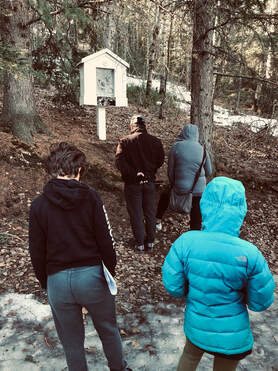 On Good Friday we continued our meditation by praying the Way of the Cross as a small family cohort at Mount St Francis retreat centre just outside of Cochrane. I allowed this life-changing truth that Jesus died on the Cross and rose again to free me from my slavery to sin and death to penetrate my heart. And on Holy Saturday we had a quiet day waiting in hopeful anticipation of the Resurrection that meets us on the other side of the Cross. The candlelit Vigil Mass is truly the climax of our liturgical year. I was awestruck by the magnificence and beauty of the words sung in the Exsultet. Again the reality of being set free from the slavery of my sin and death captured my imagination. Here’s an excerpt from the Exsultet This is the night that even now throughout the world, sets Christian believers apart from worldly vices and from the gloom of sin, leading them to grace and joining them to his holy ones. This is the night when Christ broke the prison-bars of death and rose victorious from the underworld. With my lenten pilgrimage concluded, I pondered in what ways God’s grace had worked in my life to set me free from the slavery of my sin. God loves you and me personally and unconditionally and the only thing standing in the way of His love is our own turning away from Him. And for those with eyes of faith to see that all circumstances: the good, the challenges, the everyday mundane, are all opportunities to grow in greater love of God and His Church. Happy Easter from our family to yours! And may the victory over sin and death carry on in our heart for the 50 days following Easter until Pentecost!
Names are interesting. Though we don’t usually choose our own, they give insight into one’s background. My parents had chosen another name for me but hearing that my aunt and uncle wanted to use it for their expected child, Mom and Dad left it for their use. My female cousin ended up not needing the name they reserved, but I had already been born, and named after my dad. There was a period of years when my dad thought being called ‘junior’ by friends telephoning our number (back when whole families shared a single line) was too much for me to bear; he offered to have my name changed. My wife has commented that amongst the biggest decisions we made for our children was picking their names and their godparents. We have viewed both as consequential. At the beginning, we didn’t know we had naming rules. When I was growing up back in the old country (Saskatchewan), there was a family at my school who had five children, all of whose names began with the same letter. At the time this seemed a very strange thing to do – especially when the names they used were less than common. Not every family limits the choices they allow for this key mark of identity, something the individual will probably have for the rest of his life. But I suspect most do. Sometimes they are as simple as not giving a traditionally male name to a daughter. It could be more specific and involve a particular number of letters (this is the case for a family in our acquaintance). You’d think that especially as we hoped from the beginning to have a larger family, and as it turned out that we were going to specialize in daughters, that we wouldn’t make it even more difficult to find good names. We knew that we wanted our children to share their names with strong and virtuous individuals. The devotional practice of reverencing patron saints made this pretty standard for Catholics; our daughters are each named after a canonized saint, biblical woman, or esteemed member of the family. After naming our first three daughters, we discovered that we had created a further rule: we would not repeat initial letters for first names, nor could initial letters be vowels. These final two requisites don’t have substance in themselves, but the challenge of finding names that find all criteria somehow added to the experience for us. While our girls have not placed the same restrictions on themselves in regard to their Confirmation names, they have each selected worthy patrons and sponsors. Taking names seriously is part of not only our faith, but more deeply even, God’s own nature. The second commandment tells us that misuse of God’s name is an offence. There is something of consequence here that I’m not sure we pick up very well in the 2020s. Scripture also uses names to mark changes of life: Abram to Abraham, Sarai to Sarah, Jacob to Israel, with Saul to Paul being one of the biggest. Just like the number forty represents transformation: in the Sinai, on the Ark, and with Jesus in the desert. We have just finished journeying with Jesus (“God saves”) as we’ve walked through Lent. While we likely haven’t changed any names in this time, we may have examined who we truly are, as named children of the Father. Though we suffered for forty days, Easter is now a fifty-day celebration – where fasting and mourning are behind us. The promise of spring’s new life echoes the New Life we have been promised. And our celebration of this reality means something about how we live. That’s something I’ve been thinking about too …
Beginning on Ash Wednesday (Feb. 17, 2021) and for each Sunday of the season of Lent, Bishop McGrattan is offering spiritual renewal reflections for individuals, families and communities in the Diocese as we prepare to celebrate the passion, death and resurrection of Jesus Christ. This 8-part video series of Lenten Spiritual Renewal (15-25 minutes reflection) is a part of the Diocesan Spiritual Renewal “Duc in altum | Put out into the deep”. Upcoming reflection themes on Sundays of Lent:
Ash Wednesday On his first reflection (Ash Wednesday), Bishop McGrattan calls for a personal renewal, for us to recognize or reimagine the deep gifts we received at our Baptism First Sunday of Lent | The Primacy of Grace "Opening our lives and receiving God's grace... This is how the church grows, not because of human's effort, but by us being open to receive the grace of God, and to be drawn to Christ." In today’s reflection, Bishop McGrattan speaks of the primacy of grace, that it's always God's initiative that draws us to Christ. Second Sunday of Lent | The Call to Holiness "The acceptance of God's grace is the beginning to the call of the path of holiness. It's the response that each of us are called to make in our lives." In today’s reflection, Bishop McGrattan speaks of the call to holiness. He reminds us of ways to reintensify or redevelop the call to holiness that we received in our baptism. Third Sunday of Lent 2021 | Lent “Prayer is this lifting of mind, entering into this conversation and relationship with God, lifting our heart and wanting our heart to be one with God.” In today’s reflection, Bishop McGrattan reminds us that amidst our busyness and distraction, we must always try to seek silence and solitude, to focus our minds to God. But how? Watch the video to get thoughtful examples and ideas from the Bishop. Fourth Sunday of Lent 2021 | Listening to the Word of God “To receive, to hear, to listen to the Word of God is the essential nature of the Church.” In today’s reflection, Bishop McGrattan reminds us that scripture must be at the forefront of our activities and endeavour as Christians, and invites us to renew how we listen to the Word of God. “Through the scripture, we are introduced to the very life and the mysteries of God.” The listening of the Word of God through praying, reading, studying and meditating with scripture is equally important and necessary step of preparation for when we gather as a community, and when we engage in pastoral activities. Bishop McGrattan shares the 5 steps of Lectio Divina, divine reading praying with scripture. 1. Lectio - reading of text, looking at the words we’re reading, the images of text, and to see the significance of the text and image. 2. Meditatio - what does this passage say to me, or to the early church? 3. Oratio - how does this passage of scripture move me to respond? 4. Contemplatio - how is this word of God forming in me the mind and heart of Christ? 5. Actio - how is this word making my life a gift for others? To study Verbum Domini, download the file below.
Fifth Sunday of Lent 2021 | Proclaiming the Word of God "..being sent forth is part of the nature of the Church. We call it the essential mission." In today’s reflection, Bishop McGrattan brings to mind that faith is often formed by secular values or opinions of the world. As missionary disciples, we are called to recognize these limitations, to understand the challenges we face in proclaiming the Word of God, as we go forward to convey a message of love. For students in our Catholic schools, Shrove Tuesday heralds the coming of Lent. This year, however, for many schools, there were no pancakes prepared by staff or community volunteers. The pancake breakfast, a tradition beloved by students and staff, like so many other community celebrations, have been impacted by COVID-19. This includes Ash Wednesday. Inherent to our Ash Wednesday ritual are the words spoken at the tracing of the cross on our forehead: “Turn away from sin and be faithful to the Gospel.” This year, within schools, there were no words spoken, nor a cross traced upon the forehead. Instead, a reverent silence was observed as our chaplains sprinkled ashes upon our heads. This was different from our normal experience of receiving the blessed ashes. Seeing the cross of ashes on the foreheads of friends and school staff is always intriguing for students and for others in the wider community who often ask what the mark means. We might say something to the effect of: “The blessed ashes remind us that we are marked by God and demonstrates to others that we are committing to change, a conversion of heart, in preparation for Easter.” This year, however, there were no casual inquiries about ashes upon foreheads. Again, this is one of the effects of the pandemic. We understand that the experience of some students and staff in terms of our faith celebrations, many relegated to online experiences, are not as we have been accustomed. There is, however, consistency in our Ash Wednesday scriptures. This steadfastness of the Word is important especially during these times of change. The readings we experience on Ash Wednesday help our students and staff understand that we all have a need for repentance and that “God is gracious and merciful, slow to anger, and rich in kindness” (Joel 2:13). St. Paul reminds us that the world sees the presence of Christ in the way we act (2 Corinthians 5:20-6:1). This is central to the Catholic school whereby through action and word, and the example of Christ, students are inspired to learn and are prepared to live fully and to serve God in one another. Finally, in Matthew’s Gospel, Jesus reminds us that almsgiving, prayer, and fasting are to be conducted humbly. These actions are inherent in our personal Lenten journey. Although the pandemic has changed many of the routines in our schools and impacted how we perform our rituals, we know that our faith traditions and the gift of Catholic Education give us resiliency and the hope to persevere in times of challenge. We are each called to bear witness to Jesus who models the necessity to walk humbly with God and with each other towards the renewal, hope, and transformation that culminates in Easter. Lent invites us to journey through the desert of our sin to the foot of the cross and ultimately, to share in the light of the resurrection of Jesus. We are, after all, Easter people. That will not change!
There is much to be said for the traditional customs and disciplines of our faith. But that doesn’t stop our family from actively avoiding the forty-ONE days of Lent. When the practice of using up the shortening in the house, to prepare for reduced eating during Lent, prompted the making of pancakes on Shrove Tuesday, it might have made historical sense. Today, as a man who likes protein, pancakes on the day before required fasting and abstinence seems like a poor way to fortify myself. So, in our house, we have modified the yearly last hurrah into ‘Steak’ Tuesday. It makes sense that each Lent offers an opportunity to take another step on the stairway to heaven, advancing in holiness by disciplining the temptations to think primarily of ourselves. Hearing the call to fast, pray, and give alms should prompt us to re-examine the many ways we choose our comfort over God and neighbour. Seeing one’s own unfiltered selfishness is not a pretty picture. There is lots of wisdom in the liturgical cycle of the Church – times of fast and feast, recalling the stories from our family of faith. But the living out of our faith does not take place for the most part in the sanctuary and meeting rooms at the parish. Where the rubber really meets the road is in our interactions away from the consolations and encouragements of our common worship at Mass. It’s with friends, at work, and in the home that a more accurate picture of our dedication to sanctity emerges. Sometimes family life seems like its own ongoing Lent. Each of us is continuously confronted with the needs and desires of the others: siblings, parents, children, spouse. Neither we nor they are entirely reasonable. And yet, we are still supposed to love one another – as we love ourselves (cf. Matthew 22:39b), as we love God (cf. Matthew 25:40b), and finally even as God loves us (cf. John 13:34). That’s a tough row to hoe, as the saying goes. But the confines of a shared life together are not only a type of temptation in the desert; they can also be little Gethsemanes with not-my-will-but-thines. Last night, I overheard one of our daughters apologize to a younger sister for her excessive anger earlier in the day. There are many stumbles during a family’s day, but those are also always chances to stand up again renewed. We are proud of our daughters very often, yes, but more so we are thankful for the grace of God present in them as they work out their salvation with fear and trembling. It has been said that not only do parents raise children, but children are able to help parents grow up too. The requirement to put another before self is constantly in front of mothers and fathers, starting when they are young, cute, and helpless, and when they are adolescent, awkward, and oppositional. This is the domestic Church in her sanctified fruitfulness. The same opportunity exists in the union of two-become-one, who in spite of the sacramental reality of marriage, remain two individuals. How often do we really seek to put the other first by understanding, by serving, by loving? Perhaps it starts easier in the exciting honeymoon phase of early life together, but it needs to continue as the nuptial years advance. Scripture and faith more generally use much family language to describe heavenly realities. God is Father; the Church is mother; we are brothers and sisters. And we live together now in anticipation of the wedding feast of the Lamb, readying ourselves for that celebration as best we can!
The Stations of the Light is a spiritual journey with Christ that takes one through fourteen of the most inspiriting events of His post-Resurrection life on earth. In the early Church this practice was known as the Via Lucis, or Way of the Resurrection. It invites participants to walk along a path of transforming joy by following in the footsteps of the Risen Christ and his friends. Resources for praying Via Lucis:
Pray on your own pace, with a reflection video and accompanying guide. Download the accompanying prayer booklet (Diocese of Manchester) Steeped in the ancient traditions of the Catholic Church and confused by contemporary secular culture, the Sacrament of Reconciliation intimidates a lot of people. Fr. John Nemanic gets that. He also understands why so many Catholics regularly participate in this grace-filled ritual—and he’s hopeful more will avail themselves of its sacramental blessings this Lenten season. “The Sacrament of Reconciliation is the most difficult of the seven sacraments because we have to really look at ourselves honestly,” says Fr. Nemanic, the parish priest at St. Michael Catholic Community in the West Springs community of southwest Calgary. While it can be difficult to talk about the mistakes you’ve made and the people you’ve hurt, “reconciliation is also a sacrament of growth. It helps us see where we are now—and who we aspire to be,” says Fr. Nemanic. Biblical roots, contemporary blessings The sacrament itself is rooted in biblical teachings, adds Fr. Fernando Genogaling of St. Luke’s in northwest Calgary. Instituted by Christ, Reconciliation invites us to seek forgiveness, express sorrow “and to take instruction on what to do in order to avoid making the sin,” explains Fr. Genogaling. “This sacrament is one of the ways we learn and experience the grace of humility. In return for confessing our sins, we receive an assurance of God’s love and grace. That is very powerful.” “The Lord comforts us with the sacrament,” says Fr. Nemanic. The words, “I absolve you from your sins,’ are almost incomprehensible to penitents who enter the confessional with heavy but contrite hearts, says the priest. “This sacrament is so far-reaching. When people hear those words, they experience the reality that Emmanuel is with us. The closer we are to Him, the more the penitent opens up his or her heart and the more the Lord can come into that space and heal.” For many penitents, the experience of forgiveness can be transformative. Fr. Nemanic recalls a story shared by renowned Catholic theologian Bishop Fulton Sheen. Bishop Sheen said a psychiatrist friend once told him that he marveled at the impact of Reconciliation. Whereas his clients paid him for counsel, Catholic priests gave counsel and peace—for free. Seek forgiveness Parishes in the Diocese of Calgary hold regular confessional hours during the week on a year-round basis. While penitents can trust the confessional as a sacred and confidential space, people who don’t want to confess their sins to a priest they know can go to another parish, or attend a penitential service and talk to a priest they don’t know, says Fr. Genogaling. He and Fr. Nemanic also recognize that people aren’t necessarily comfortable making a Reconciliation while facing a priest—and that’s okay, too. “I would say that 75 per cent of the people who come to reconciliation at St. Michael’s stay behind the screen even though they could just walk around the partition,” says Fr. Nemanic. Those tempted to shy away from Reconciliation after a bad experience should consider what’s at stake, notes Fr. Nemanic. As he sees it, most people have also had bad experiences in at least one restaurant, but that doesn’t keep them from ever enjoying another restaurant meal. The same logic should apply to not denying themselves the blessings of Reconciliation. And what would he say to a Catholic who is worried about not having received the Sacrament of Reconciliation for a while? “I would say, ‘just come,’” says Fr. Nemanic. Those who go regularly do so because they understand the grace it bestows. “If people would give five minutes a month, their lives would change immeasurably for the better because they’ve made themselves available to encounter the Lord’s mercy.” Since honesty and contrition are essential to a good confession, Fr. Genogaling encourages people to spend some time examining their conscience before entering the confessional. ========
Written by Joy Gregory for Faithfully
 Do you know that the proper Sequence is obligatory on Easter and Pentecost Sunday? It is to be sung following the second reading. The Gospel Acclamation follows the Sequence as usual. The sequence can be sung by the cantor, by the choir, or by the entire assembly. The CCCB encourages the participation of the assembly. The Easter sequence may be sung on every day of the Easter Octave including especially the Second Sunday of Easter. Handy links for Parish music ministers and cantors: Easter Sequence
Pentecost Sequence
As the Season of Lent begins, it is a good time for us to seek an interior renewal and to face the distracting attachments and preoccupations that have become part of our often very busy lives. These forty days serve to remind us of Christ’s journey into the desert. The Catechism of the Catholic Church (CCC) tells us that “Jesus' temptation reveals the way in which the Son of God is Messiah, contrary to the way Satan proposes to him and the way men wish to attribute to him. This is why Christ vanquished the Tempter for us: “For we have not a high priest who is unable to sympathize with our weaknesses, but one who in every respect has been tested as we are, yet without sinning. By the solemn forty days of Lent, the Church unites herself each year to the mystery of Jesus in the desert. (CCC, 540) It is this Lenten discipline of penance, renunciation, and detachment which reawakens within us the awareness of our dependence on God and His great love for each of us. While retreating to the desert might be impossible on a practical level, our Lenten observance of penance, abstinence, prayer, and almsgiving helps us to grow in Christ daily and to avoid temptation. In particular, the psalmist’s refrain, “Be still and know that I am God” invites us to be attentive to our times of personal and communal prayer. One of the Desert Fathers, Amma Syncletica said, “There are many who live in the mountains and behave as if they were in the town, and they are wasting their time. It is possible to be a solitary in one’s mind while living in a crowd, and it is possible for one who is a solitary to live in the crowd of his own thoughts.” (Benedicta Ward, The Sayings of the Desert Fathers, Cistercian Publications: 1975, p. 19) Listening to God in prayer is an important part of a life of faith. God desires to speak to us and we have the privilege of listening to the promptings of His Spirit through the consolations and desolations with which He graces us during our prayer. William Barclay’s reflection on prayer and silence is often quoted as follows, “… Prayer is a way of offering ourselves to God in order that He should be able to make use of us. It may be that one of our great faults in prayer is that we talk too much and listen too little. When prayer is at its highest, we wait in silence for God's voice to us; we linger in His presence for His peace and His power to flow over us and around us; we lean back in His everlasting arms and feel the serenity of perfect security in Him.” The psalmist writes in Psalm 46, “Be still, and know that I am God! I am exalted among the nations, I am exalted in the earth. The Lord of hosts is with us; the God of Jacob is our refuge.” Walter Brueggemann, a well-known scholar of the psalms, says that some psalms were written for the good times while others were written for the times when the future seemed uncertain and perhaps filled with impending troubles. These psalms were written for people living in times of change and uncertainty who were experiencing feelings of anxiety and even dismay. (The Spirituality of the Psalms, Brueggemann, pp. 19-25.) Psalm 46 provides the reassurance that God is stable when all else seems unstable. At a deeply personal and spiritual level, this is important for each of us. This is the deeper experience of prayer and listening which the time of silence and stillness offers to us. “In the silence of the heart, God speaks. If you face God in prayer and silence, God will speak to you. Then you will know that you are nothing. It is only when you realize your nothingness, your emptiness, that God can fill you with Himself. Souls of prayer are souls of great silence.” (Saint Teresa of Calcutta, In the Heart of the World: Thoughts, Stories and Prayers) Let us embrace this season of Lent as a time to “be solitary in one’s mind.” (Benedicta Ward, Ibid.) If we allow God’s grace to renew our hearts during this Lenten season through prayer, then in the solitary stillness of such experiences we will know His great love, wisdom, and charity and be moved more generously to witness and share this with others. |
Author
Catholic Pastoral Centre Staff and Guest Writers Archives
July 2024
Categories
All
|
|||||||||||||||||||||||||||||||||||||||||||
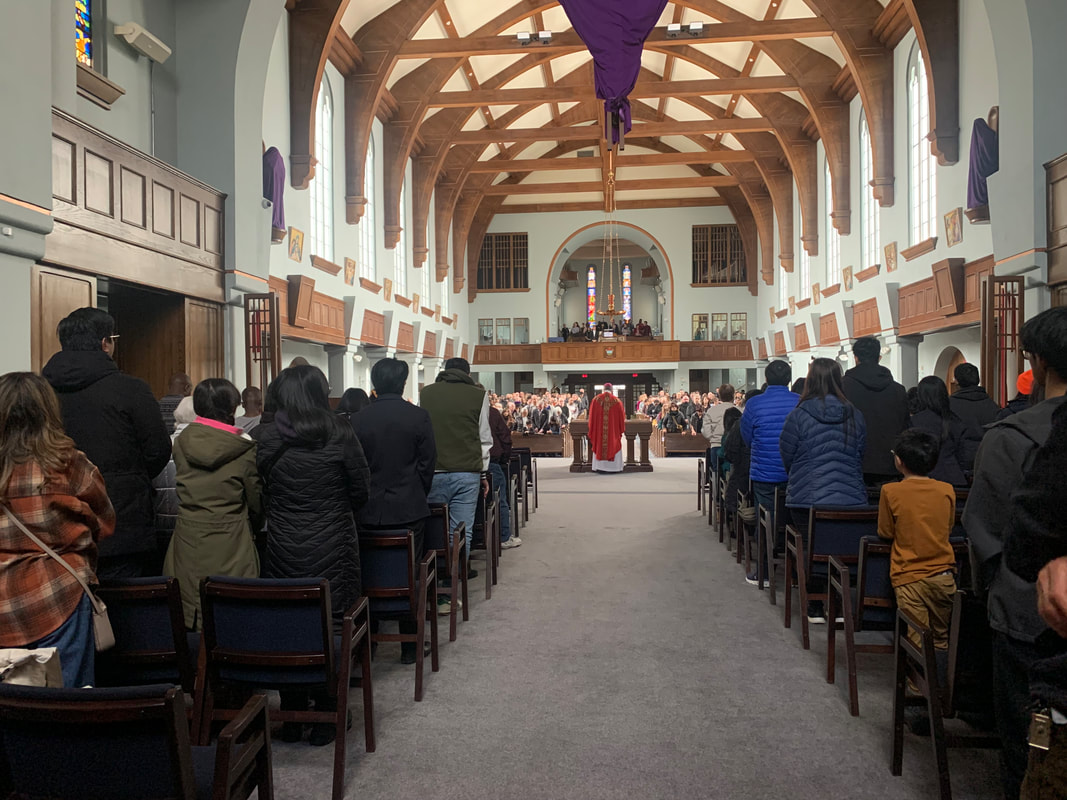

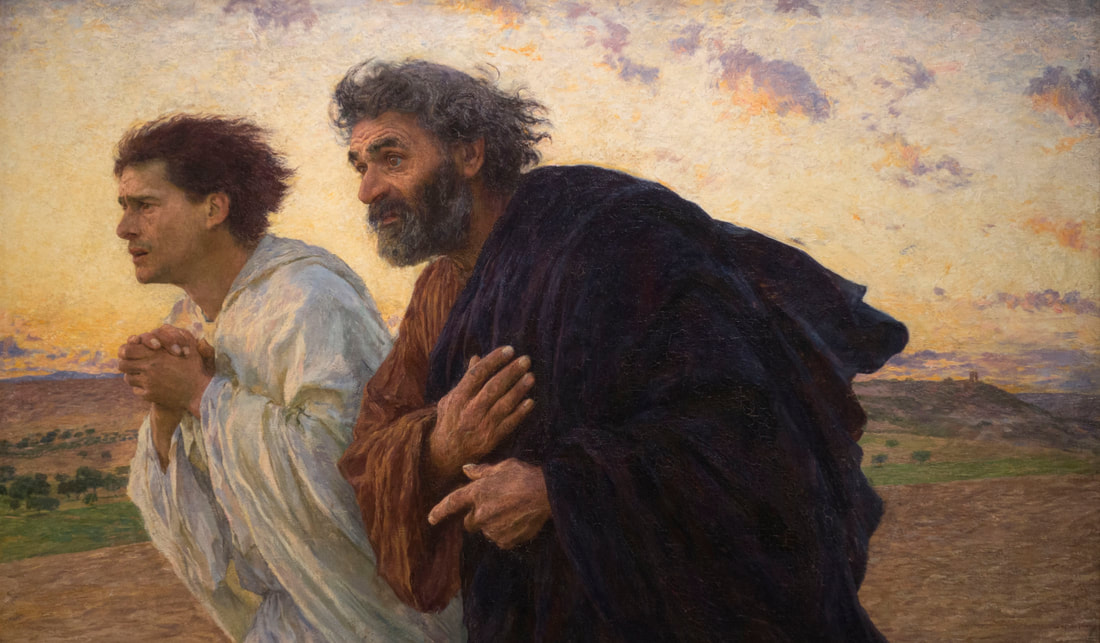

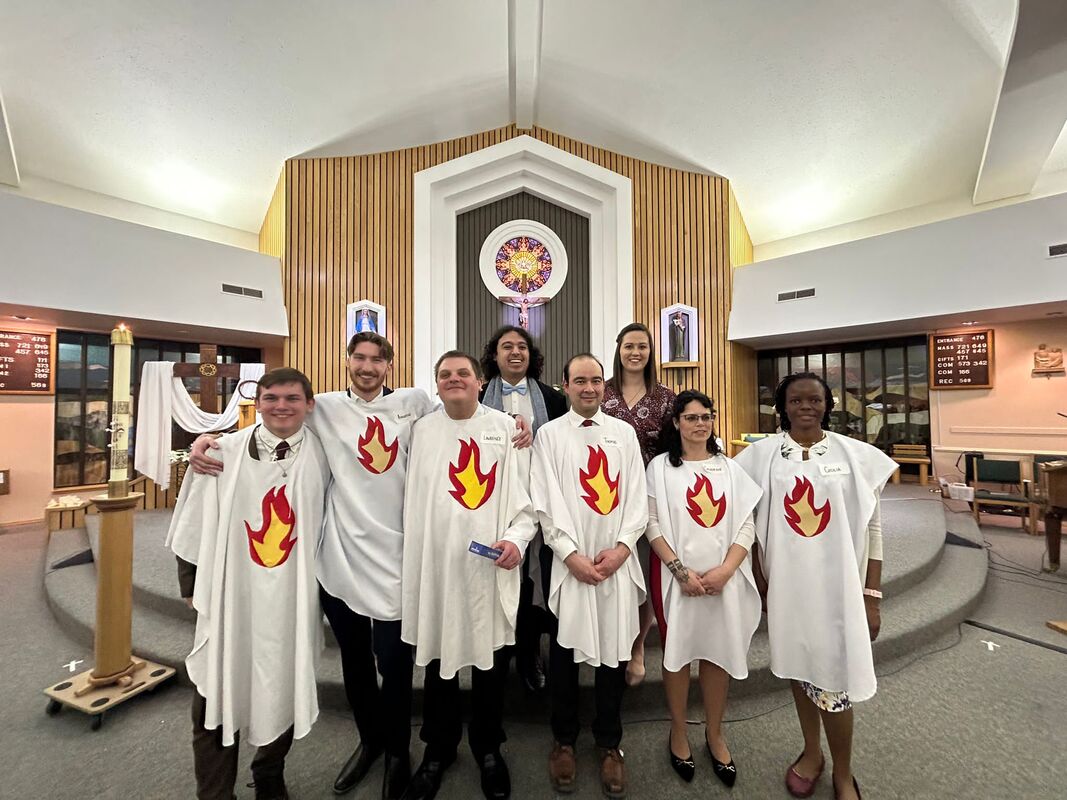
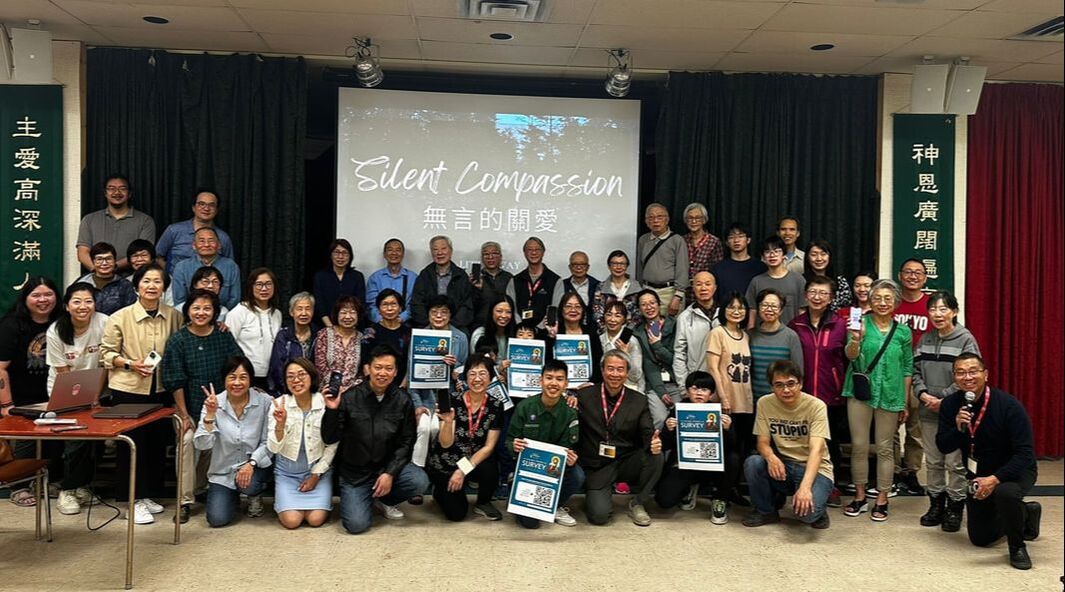
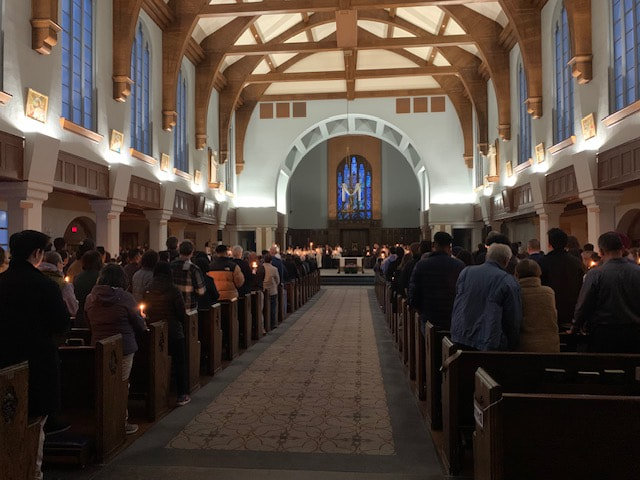
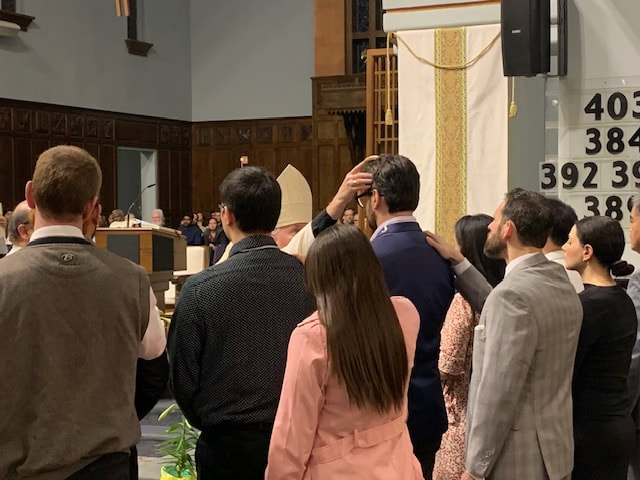
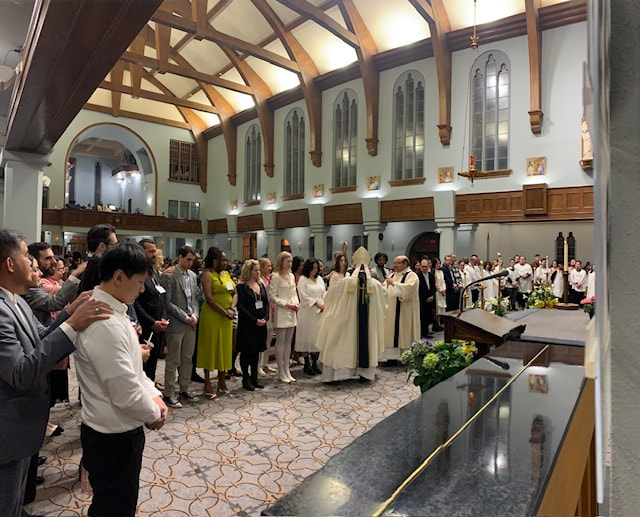
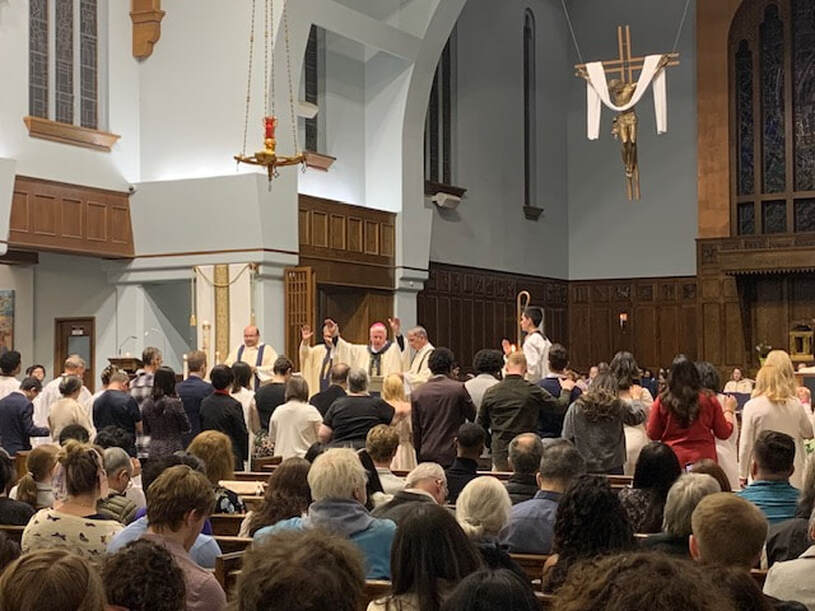
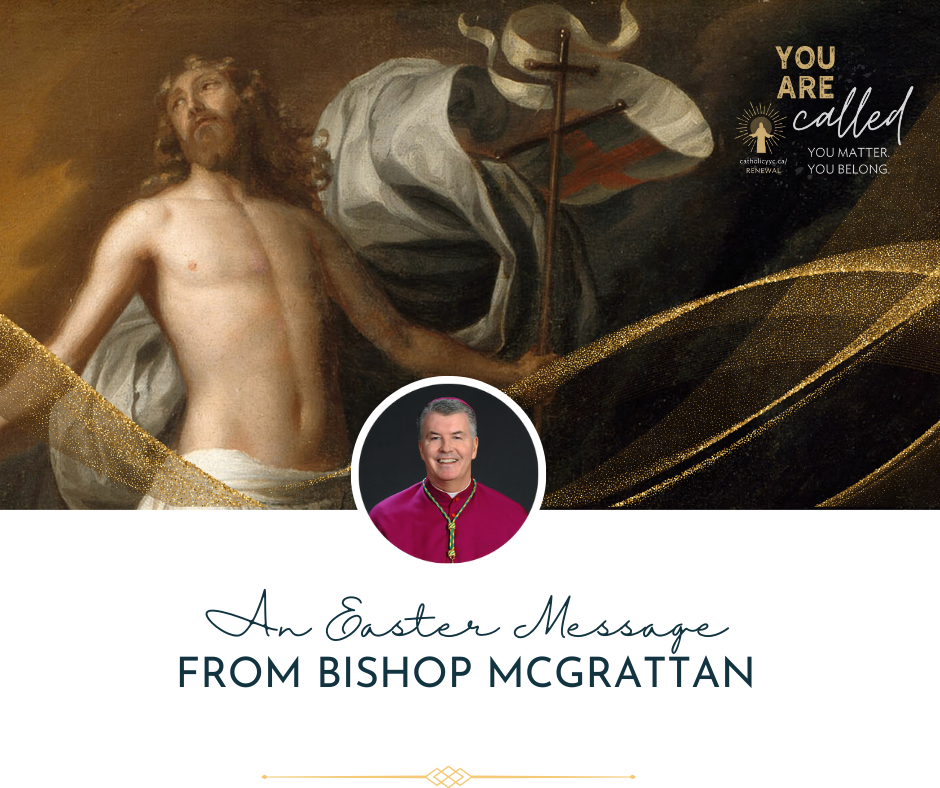
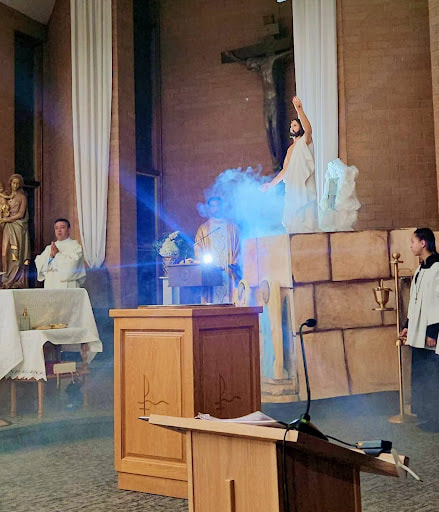

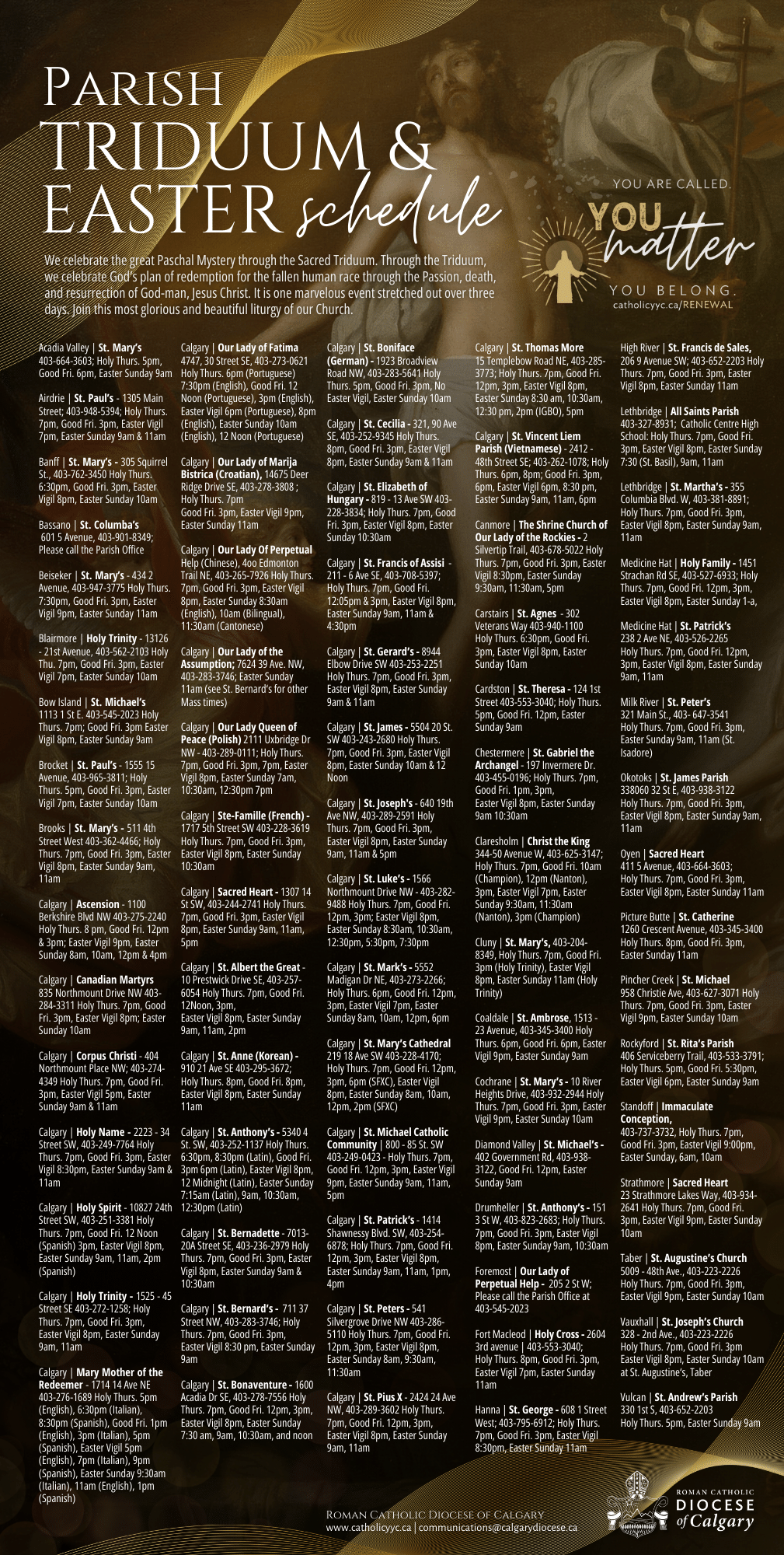
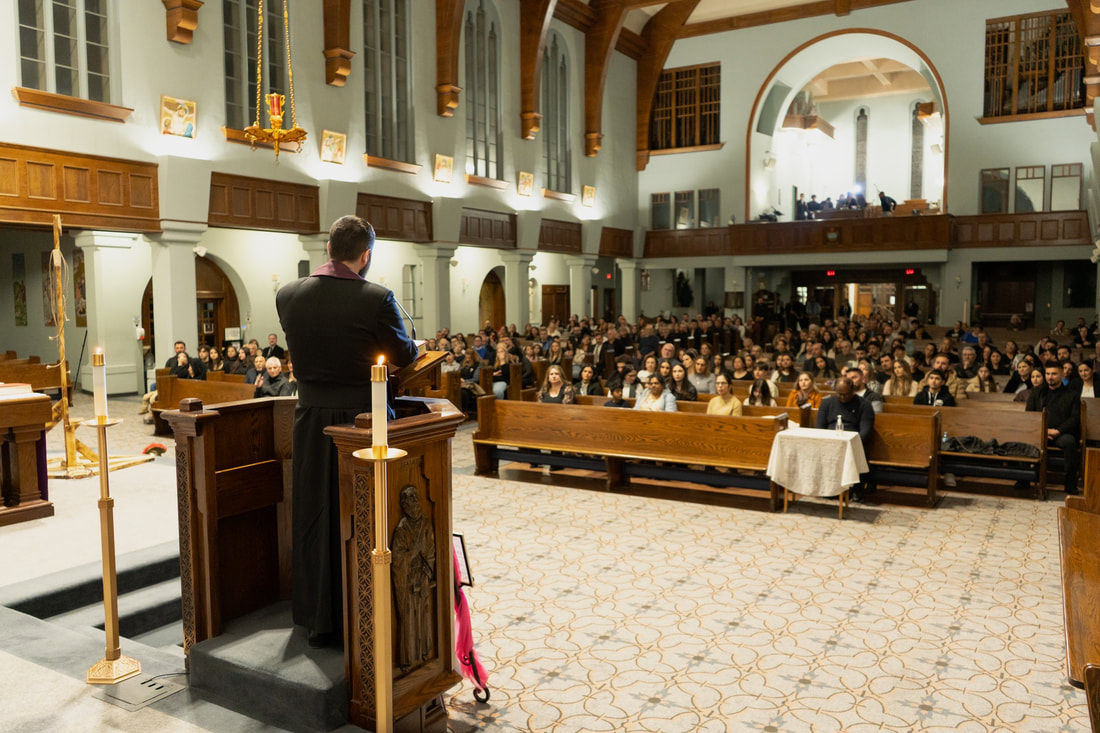
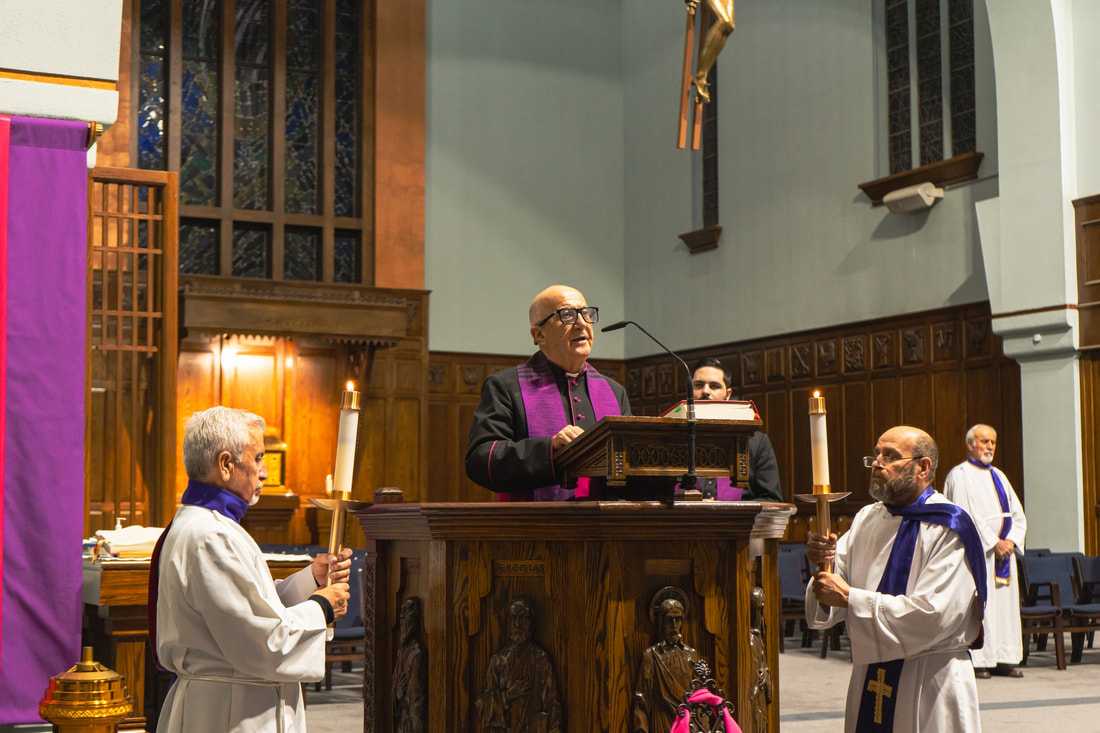
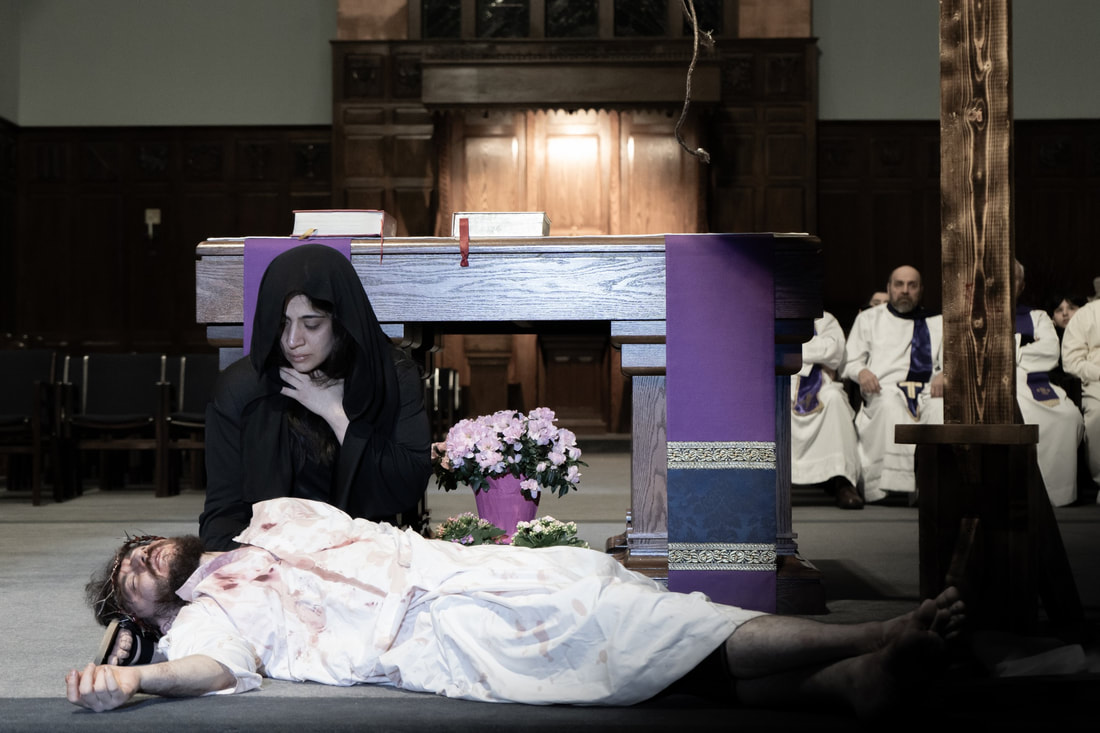
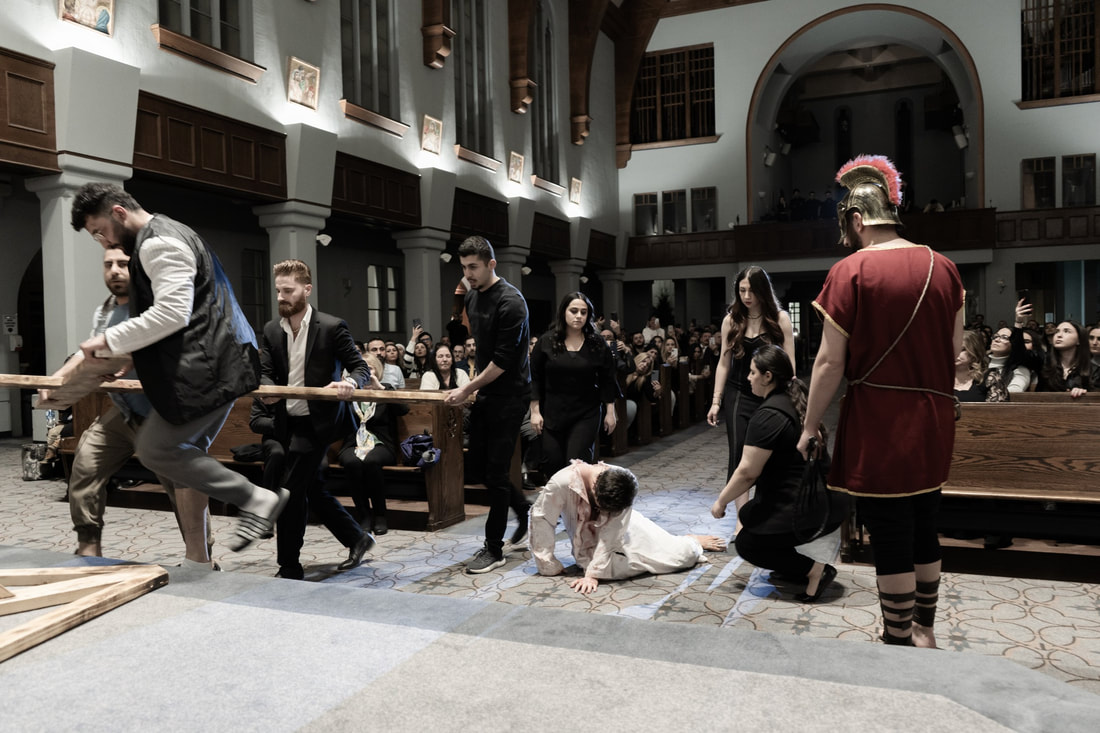
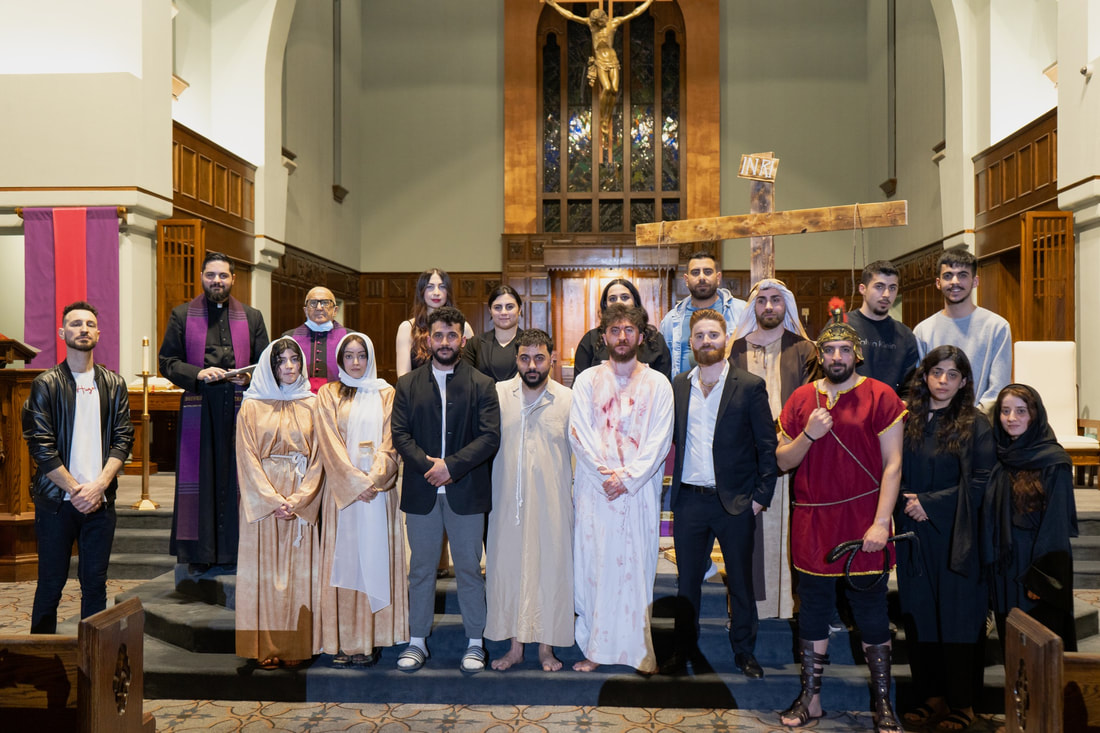
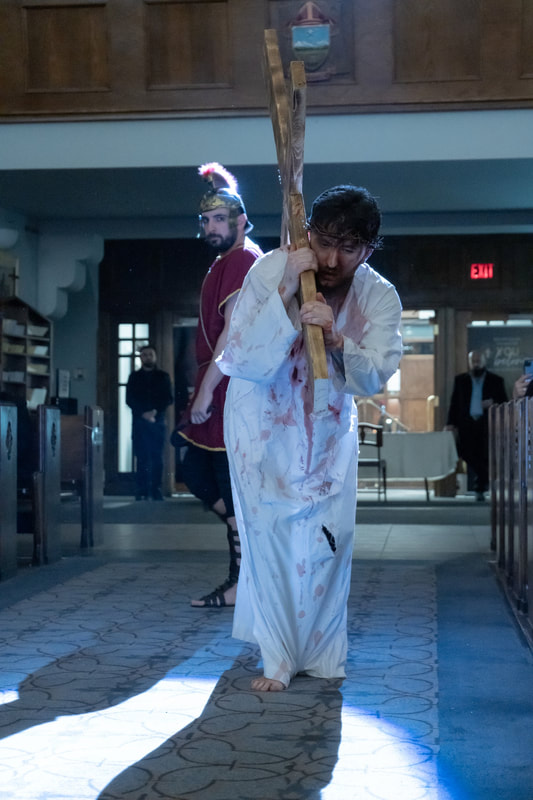
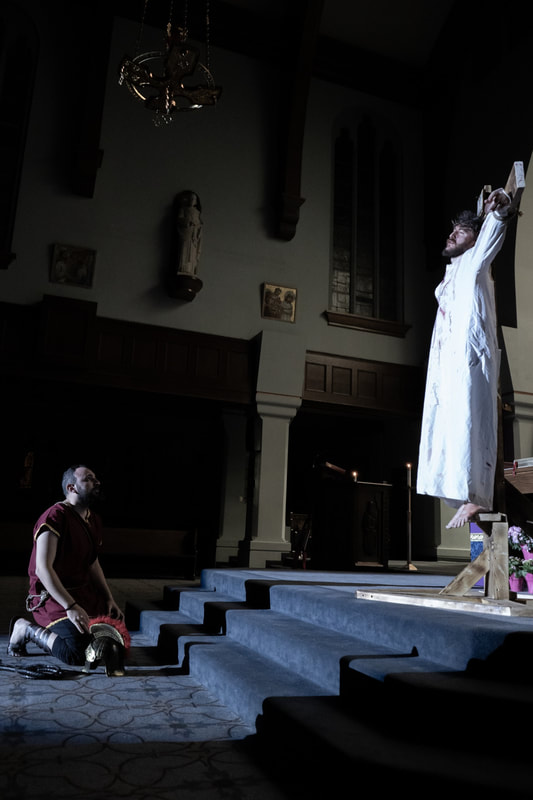
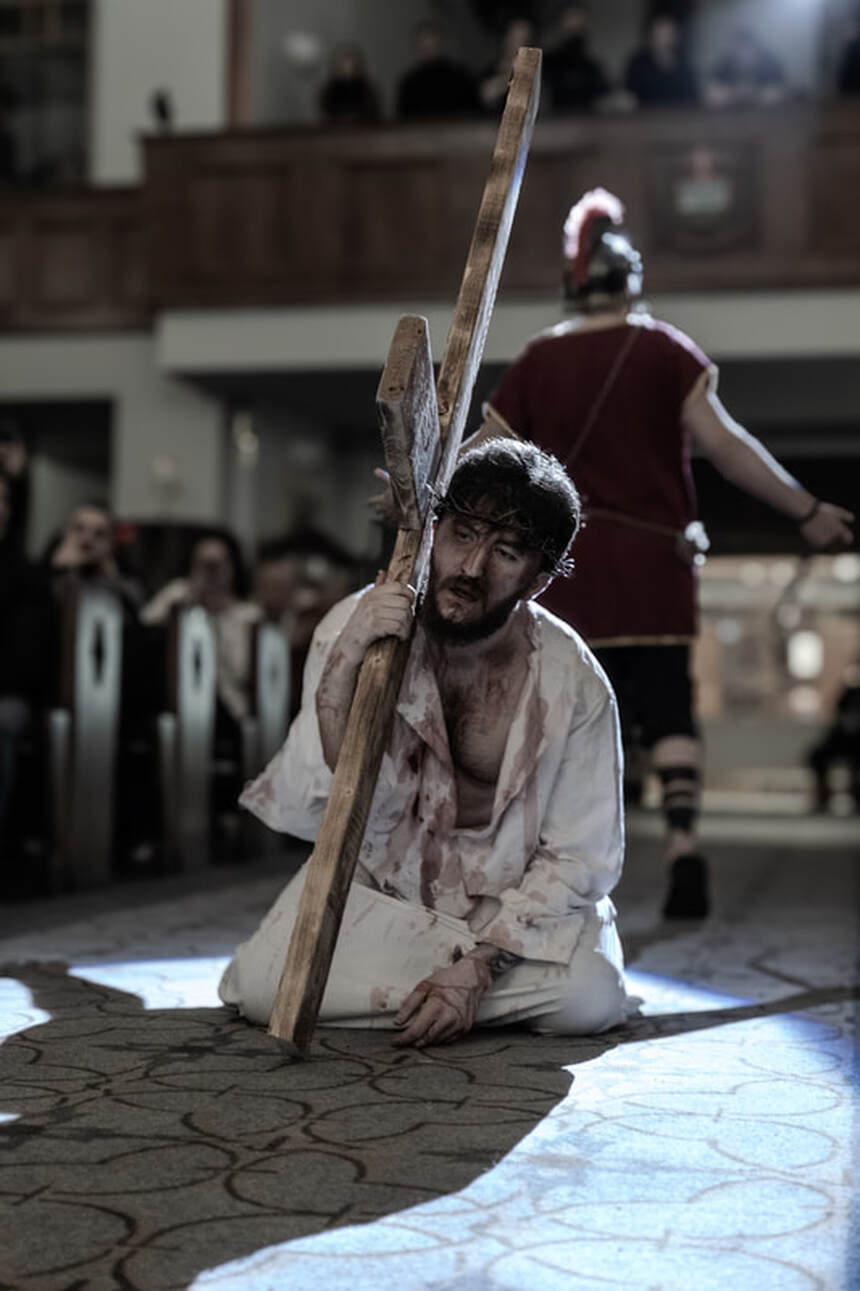

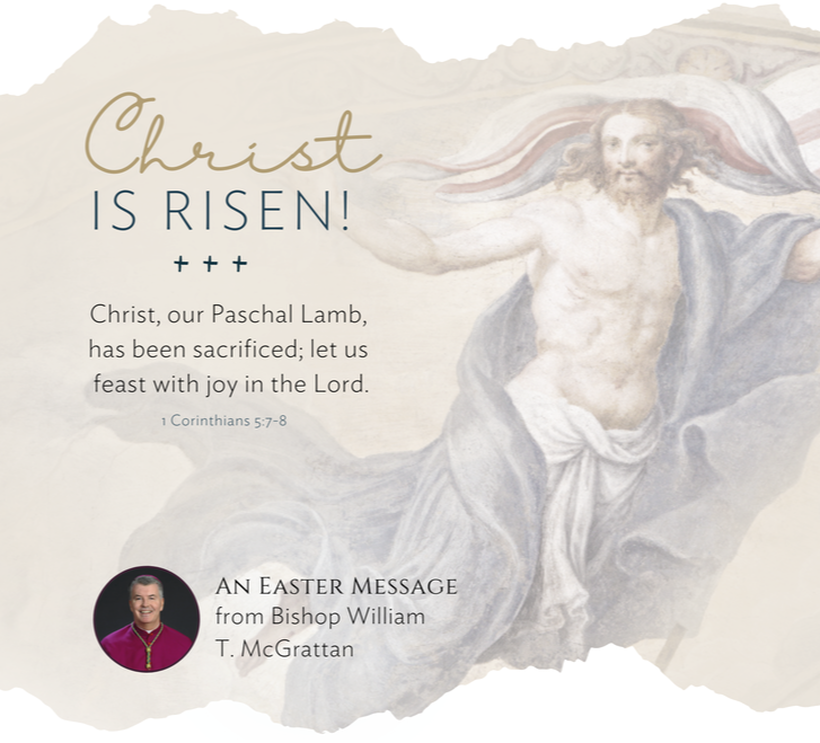
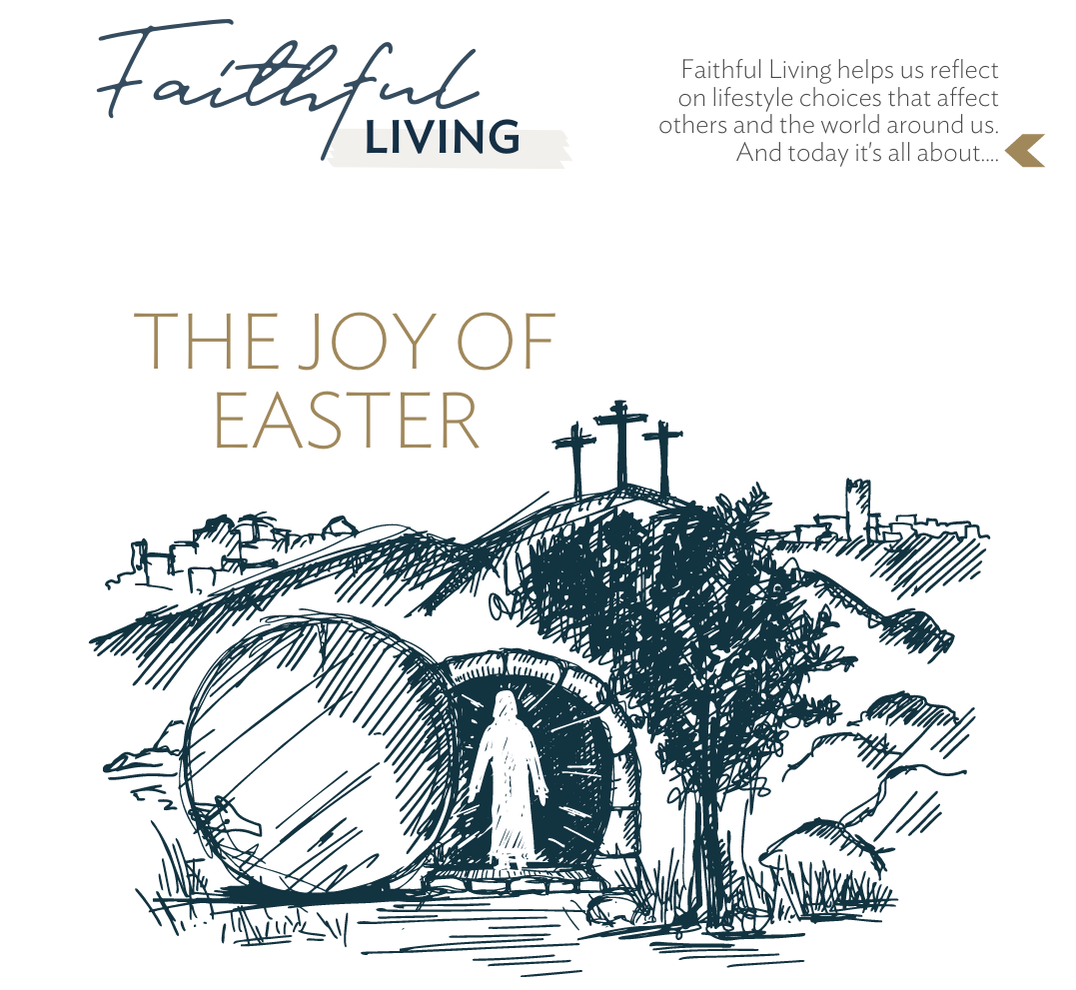
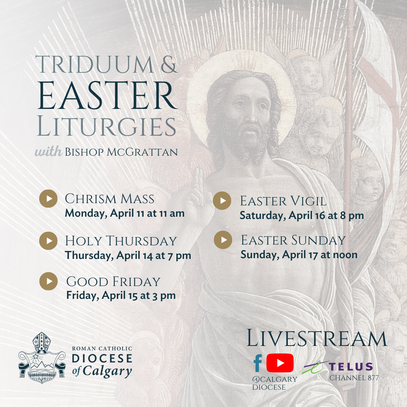


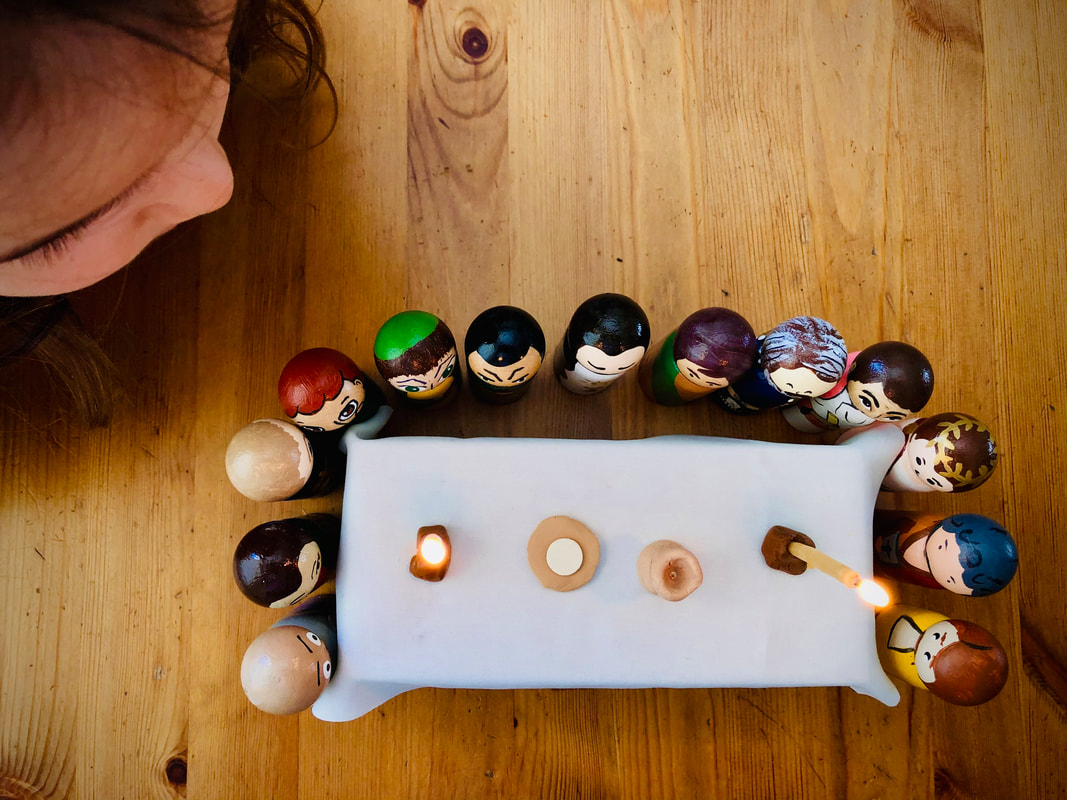
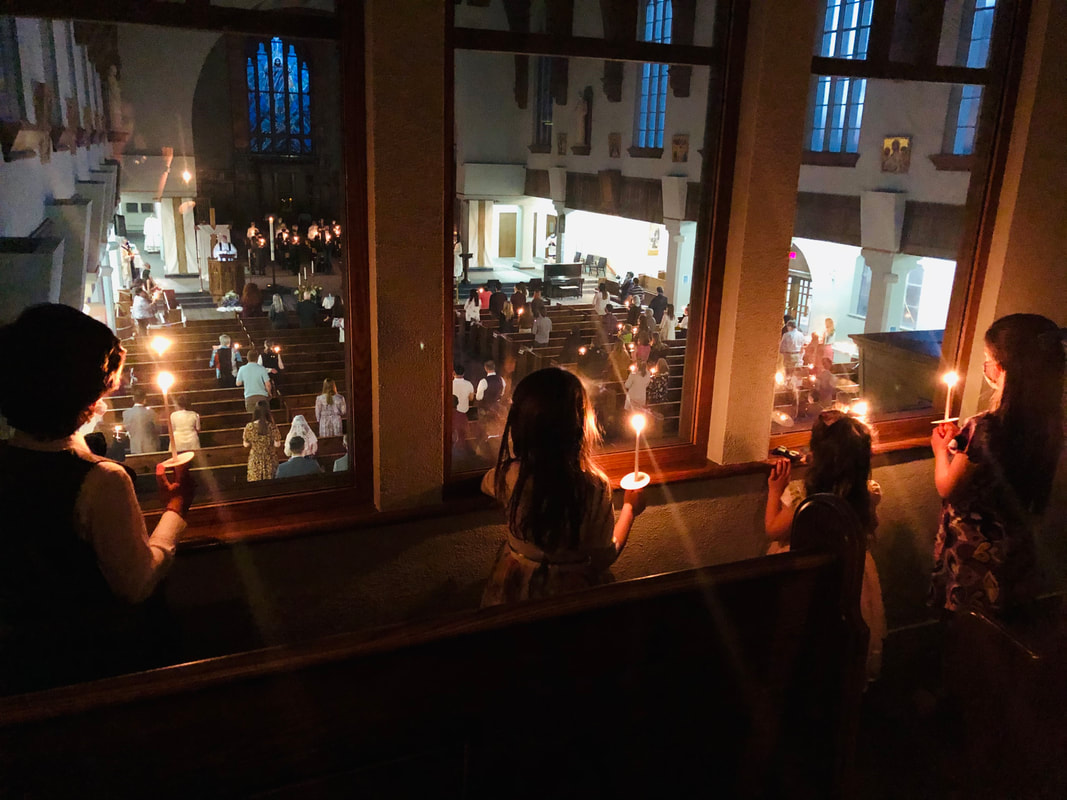
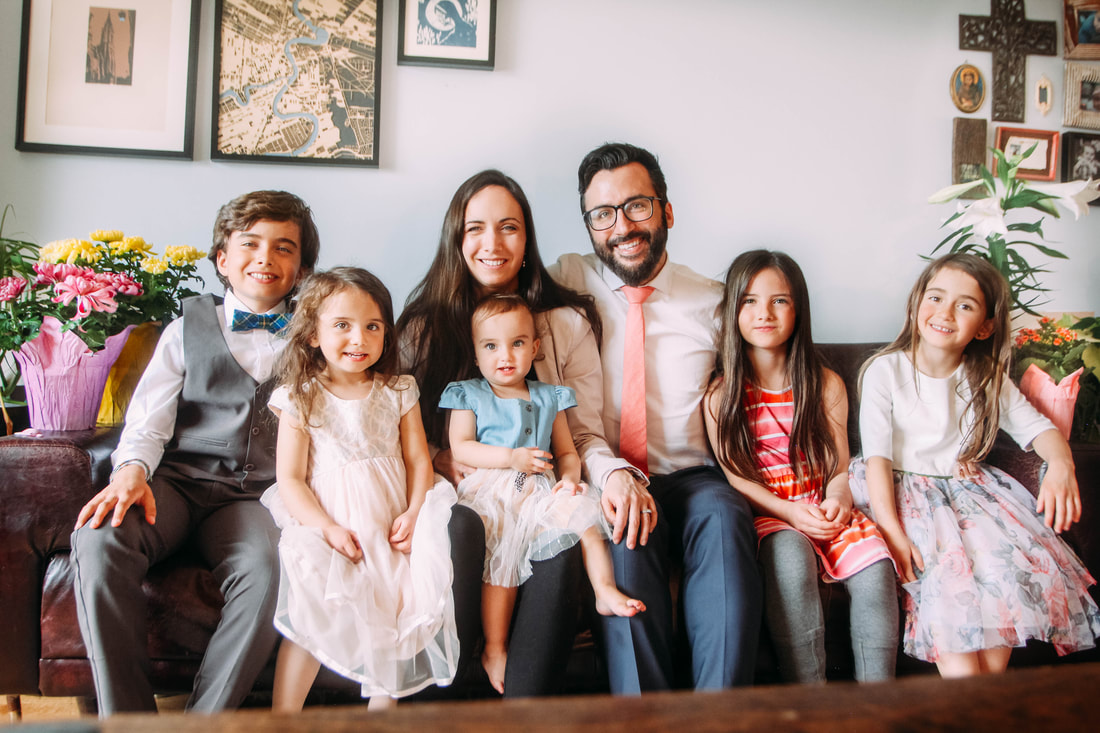


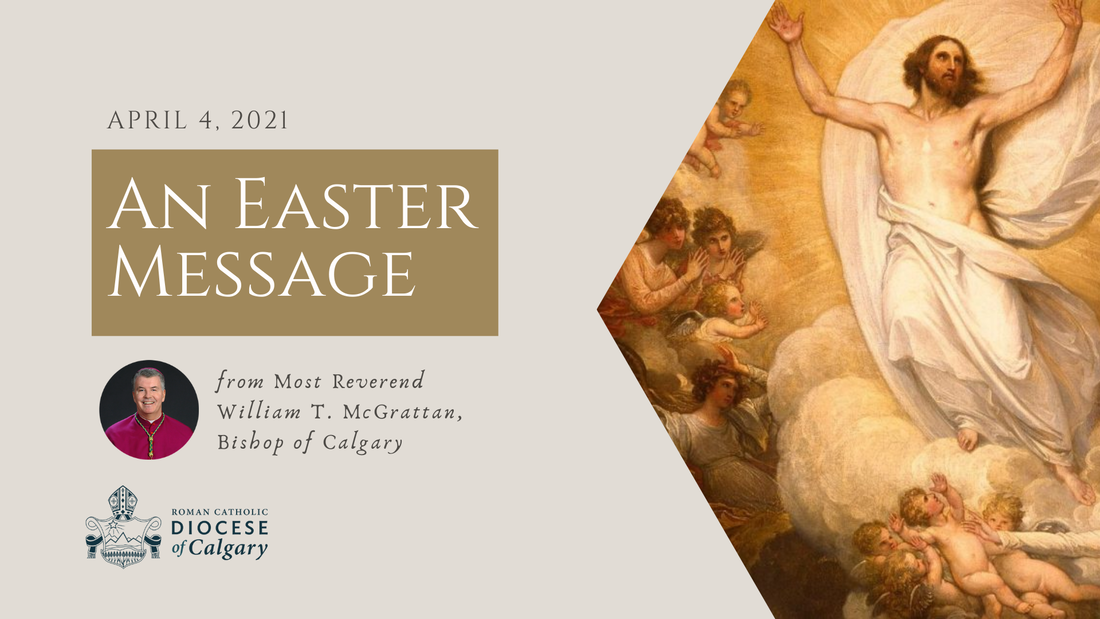





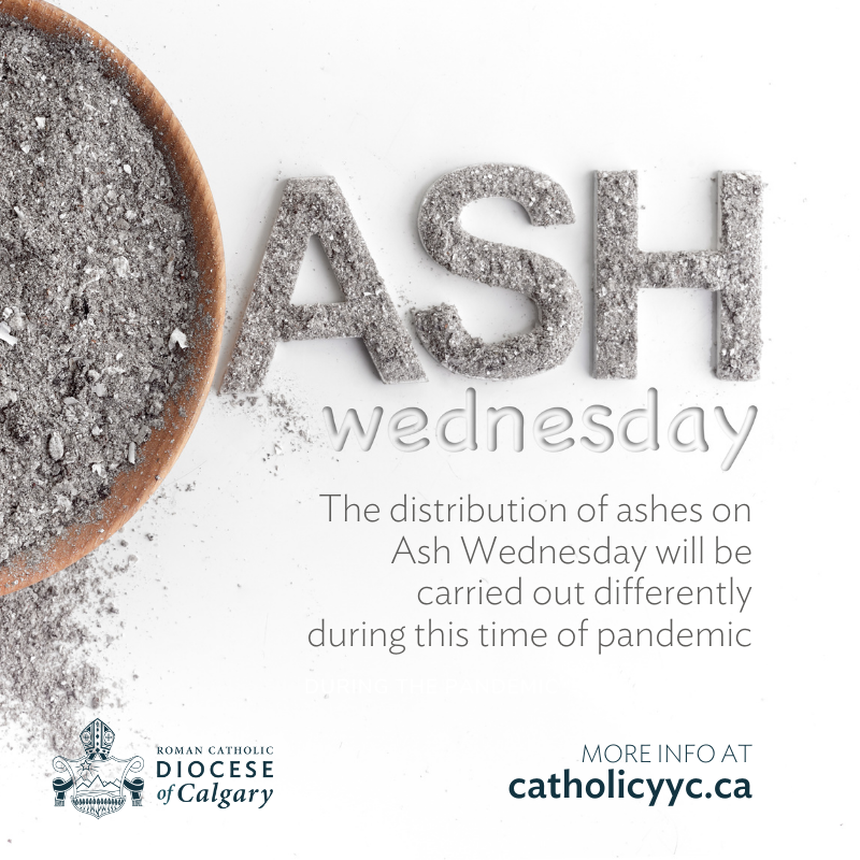



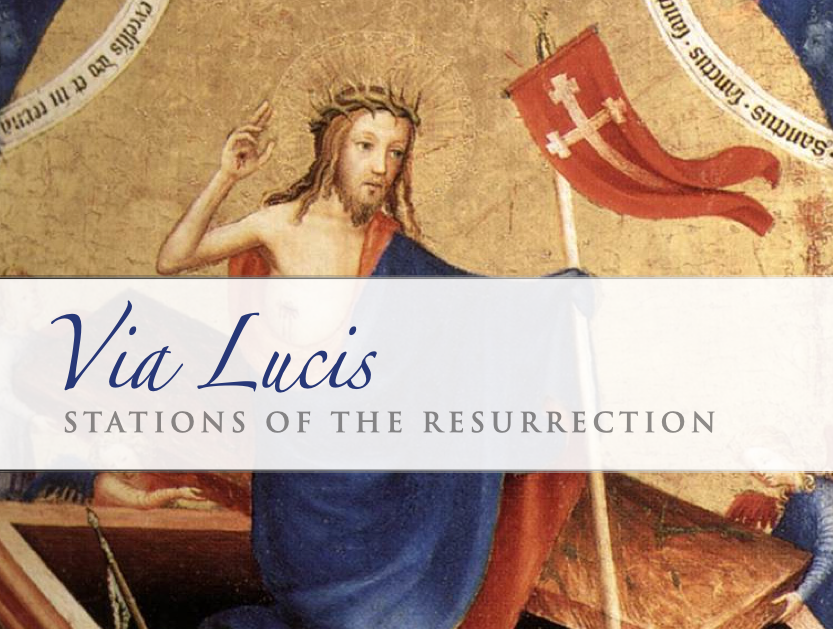

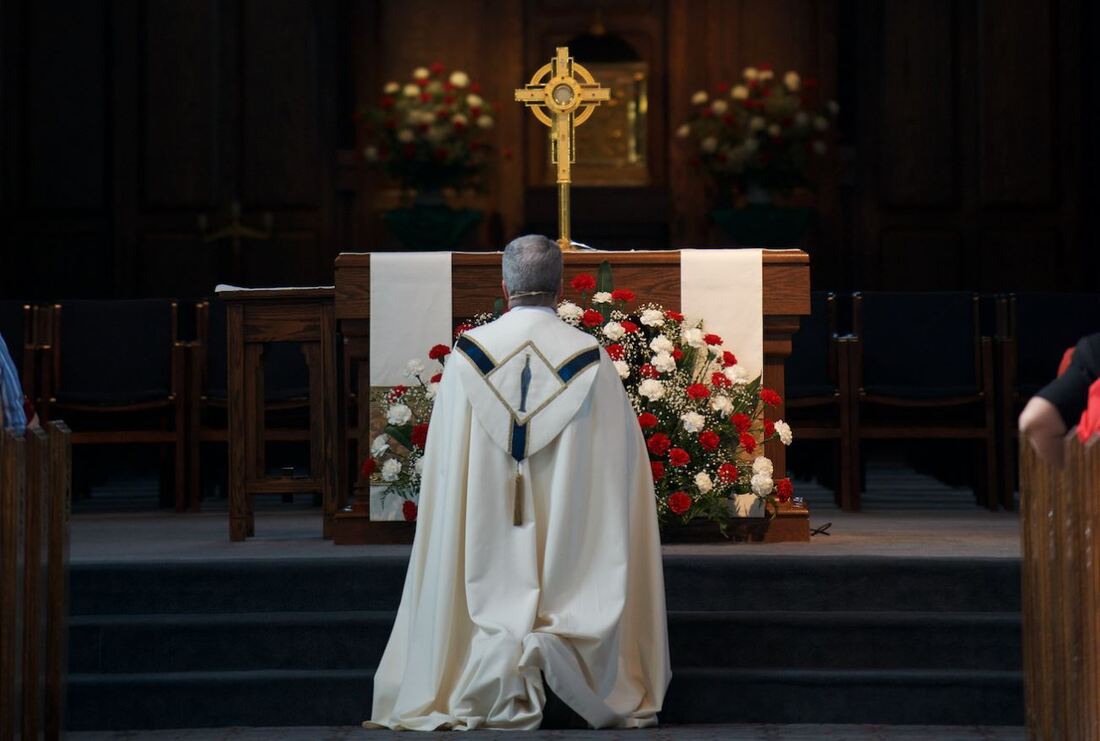

 RSS Feed
RSS Feed